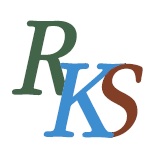The Ruling Discourse and Mass Politics of the Park Chung Hee Regime
Abstract
The Park Chung Hee period was when a fully fledged modern nation state was formed. As nation state is intimately joined with the process of capitalistic expansion and reproduction, the Park regime’s modernization project can be summed up as an expansion of capitalism and construction of national subjectivity. Farmers, workers, and university students, while occupying different sociopolitical locations in society, were unitary subjects insofar as they were actively mobilized for the modernization project. This paper argues that in the process of mobilization, the state exercised both coercion and politics of consent; the state’s developmentalism was conjoined with the people’s egalitarian desire for a better life. The people did not just passively follow the state, but also actively and enthusiastically participated in the state’s mobilization drive. The Park regime was also an active practitioner of mass politics. The dominant state discourse of developmentalism and nationalism reappropriated as its own the egalitarian pressure coming from below, making its politics not just of repression but also of desire. Unlike the politics of discrimination of the pre-modern period, the Park regime pursued the nationalization of society and people by interpellating the disparate people into a unified national subjectivity.
- keywords
- Park Chung Hee, Saemaeul undong, developmentalism, egalitarianism, mass politics, Agrarian Service Movement
참고문헌
An, Byeong-uk.1968. Changjo wa hondon ui jang (Scene of Creation and Confusion). Sasanggye (August).
Choe, Jang-jip. 1988. Hanguk ui nodong undong gwa gukga (Labor Movement and State in South Korea). Seoul: Yeoreumsa.
Farmer A, 2000. Interview with Icheonsiji maeuljosadan. Icheon, Gyeonggido.
Farmer B, 2000. Interview with Icheonsiji maeuljosadan. Icheon, Gyeonggido.
Han, Byeong-jin. 1995. “1970-nyeondae gukga wa nongmin gwangye e daehan yeongu” (Research on the Relationship between the State and the Farmers in the 1970s). MA diss., Seoul National University.
Hanguk gyoyuk hakhoe.1974. Hanguk saemaeul gyoyuk e gwanhan yeongu (Research on the Saemaeul Education in Korea). Seoul: Hanguk gyoyuk hakhoe.
Hong, Seok-nyul. 1998. 1960-nyeondae jiseonggye ui donghyang (The Trend in Intellectual Community of the 1960s). In 1960nyeondae sahoe byeonhwa yeongu: 1963-1970. Gil-seong Pak et al, eds. Seoul: Baeksan seodang.
Hwang, Byeong-ju. 2006. Park Chong Hee cheje ui jibae damnon gwa daejung ui gungminhwa (The Ruling Discourse and Nationalization of the Masses under the Park Chung Hee System). In Geundae rul dasi ikneunda vol. 1, ed. Yun Hae-dong et al, 469-507. Seoul: Yeoksa bipyeongsa.
Hwang, Byeong-ju. 2004. Park Chong Hee cheje ui jibae damnon gwa daejung ui gungminhwa (The Ruling Discourse and Nationalization of the Masses under the Park Chung Hee System). In Daejung dokje 1: Gangje wa dongui saieso (Mass Dictatorship: Between Coercion and Consent), eds. Jie-Hyun Lim and Yeong-u Kim, 475-516. Seoul: Chaeksesang.
Hyeondae jeongchi yeonguhoe. 1976. Yusin jeongchi ui jido inyeom (Ruling Principles of the Yusin Politics). Seoul: Gwangmyeong chulpansa.
Im, Su-hwan. 1997. Park Chung Hee sidae sonong cheje e daehan jeongchi gyeongjehakjeok gochal: pyeongdeungjuui, jabonjuui, geurigo gweonwijuui (On Political and Economic Consideration of the Peasantry during the Park Chung Hee Period: Egalitarianism, Capitalism, and Authoritarianism). Hanguk jeongchi hakbo 31:4.
Jeon, Jae-ho. 2000. Bandongjeok geundaejuuija Park Chung Hee (Park Chung Hee, the Reactionary Modernist). Seoul: Chaeksesang.
Jeonguk daehak hakdo hogukdan pongsa yeonhaphoe. 1982. Daehaksaeng pongsa hwaldong 10-nyeonsa (The Ten-Year History of University Students’ Service Activities). Seoul: Jeonguk daehak hakdo hogukdan pongsa yeonhaphoe.
Kim, Jun. 1995. “Asia gweonwijuui gukga ui nodong jeongchi wa nodong undong” (Labor Politics and the Labor Movements of Asian Authoritarian Regimes). Ph.D. Diss., Seoul National University.
Kim, Jun. 2002. 1970-nyeondae yeoseong nodongja ui ilsang saenghwal gwa uisik (Everyday Life and Consciousness of the 1970s Women Workers). Yeoksa yeongu 10.
Gu, Hae-geun. 2002. Hanguk nodong gyegeup ui hyeongseong (Formation of Korean Working Class). Seoul: Changjak gwa bipyeongsa.
Lee, Namhee. 2007. The Making of Minjung: Democracy and the Politics of Representation in South Korea. Ithaca and New York: Cornell University Press.
Minjunochong. 2003. Nodongja munhwa siltae josa bogoseo (Report on the Investigation of the Condition of Workers’ Culture).
Park, Chung Hee. 1963 [1997]. Gukga wa hyeongmyeong gwa na (State, Revolution, and I). Seoul: Jiguchon.
Park, Chung Hee. 1962 [1970]. Our Nation’s Path: Ideology of Social Reconstruction. Seoul: Hollym Corp.
Saemaeul yeonguhoe.1976. Saemaul yeongu nonchong, Vol. 1. Seoul: Naemubu.
Saemaeul yeonguhoe. 1980. Saemaeul undong 10-nyeonsa (The Ten-Year History of the New Village Movement). Seoul: Naemubu.
Seonggonghoedae sahoe munhwa yeonguwon. 2002. 1970nyeon sanophwa chogi Hanguk nodongsa yeongu (Research on the Korean labor movement during the industrialization of the early 1970s). Seoul: Seonggonghoe Daehakgyo.
Wolgan Joseon, ed. 1993. Birok Hanguk ui daetongnyeong (A secret memoir: Presidents of South Korea). Seoul: Joseonilbosa.
Yi, Jeong-o. 1988. Banje banil minjokjuui wa 6.3. undong (Anti-American and anti-Japanese nationalism and the 6.3 movement). Yeoksa pipyeong 1.
Yu, Byeong-yong et al, eds. 2001. Geundaehwa jeollyak gwa saemaeuundong (Modernization Strategy and the New Village Movement). Seoul: Paeksan seodang.
- 다운로드 수
- 조회수
- 0KCI 피인용수
- 0WOS 피인용수


